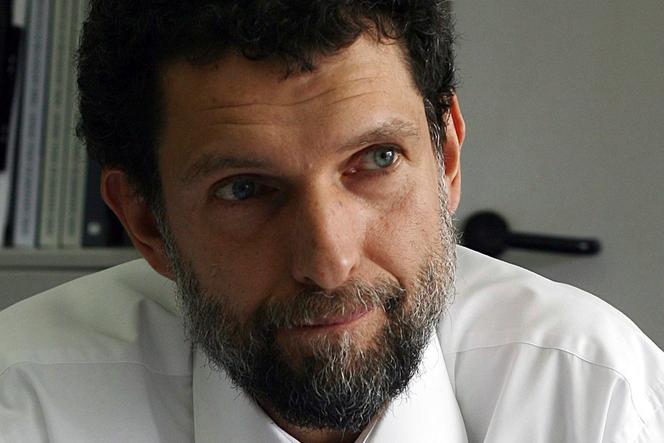


Incarcerated Turkish philanthropist Osman Kavala was awarded the Vaclav Havel Prize by the Parliamentary Assembly of the Council of Europe in Strasbourg on Monday, October 9. Awarded annually for the past ten years, the prize recognizes "exceptional actions" by people committed to defending human rights in Europe and beyond. The former businessman is an emblematic figure in civil society. A bête noire of Recep Tayyip Erdogan's government, he was arrested in 2017 and accused, against all probability, of having financed the 2016 coup d'état and even the Gezi uprising, in the heart of Istanbul, during the spring of 2013.
This figure of the Istanbul intelligentsia is the second Turkish personality to receive the distinction. In 2017, the prize had been awarded to judge Murat Arslan, former rapporteur of the Turkish Constitutional Court, imprisoned for "belonging to a terrorist organization" by an Ankara court the previous year.
Like his predecessor, Osman Kavala was unable to travel to the Alsatian capital. Like him, however, he was able to write a letter of thanks which was read to the parliamentarians from 47 countries present in the hemicycle, including Turkey, a member of the Council of Europe since 1950. It was his wife Ayse Bugra, a sociologist and professor of political economy in Istanbul, who was present in Strasbourg, who carried his voice.
Detained since 1er November 2017, the philanthropist, now aged 66, was sentenced in 2022, after four and a half years in pre-trial detention, to "aggravated perpetuity," in solitary confinement and with a "perpetual" period of security. This sentence was introduced into the legal arsenal to replace the death penalty, abolished in 2004.
The verdict was delivered after less than an hour's deliberation. Seven other defendants - architect Mücella Yapici, documentary filmmaker Cigdem Mater, civil rights activist Ali Hakan Altinay, lawyer Can Atalay, filmmaker Mine Özerden, academic Tayfun Kahraman and NGO founder Yigit Ali Ekmekçi - had each been sentenced to 18 years in prison for the same charge: attempting to "overthrow the government by force" by fomenting the Gezi Park protests.
The movement was the first major protest against the then Prime Minister, Recep Tayyip Erdogan. It was peaceful and spontaneous, driven mainly by young people, but ended in violent repression, with seven people killed and over 8.000 injured. At the time, Osman Kavala, known for devoting his fortune to charitable activities and the promotion of Turkey's multicultural heritage - Kurdish, Armenian and Syriac - tried to mediate between the demonstrators and the authorities. It was not to his liking. He became the authorities' main target. Indeed, the Turkish Prime Minister made no secret of his desire to punish the patron of the arts.
You have 61.52% of this article left to read. The rest is for subscribers only.
